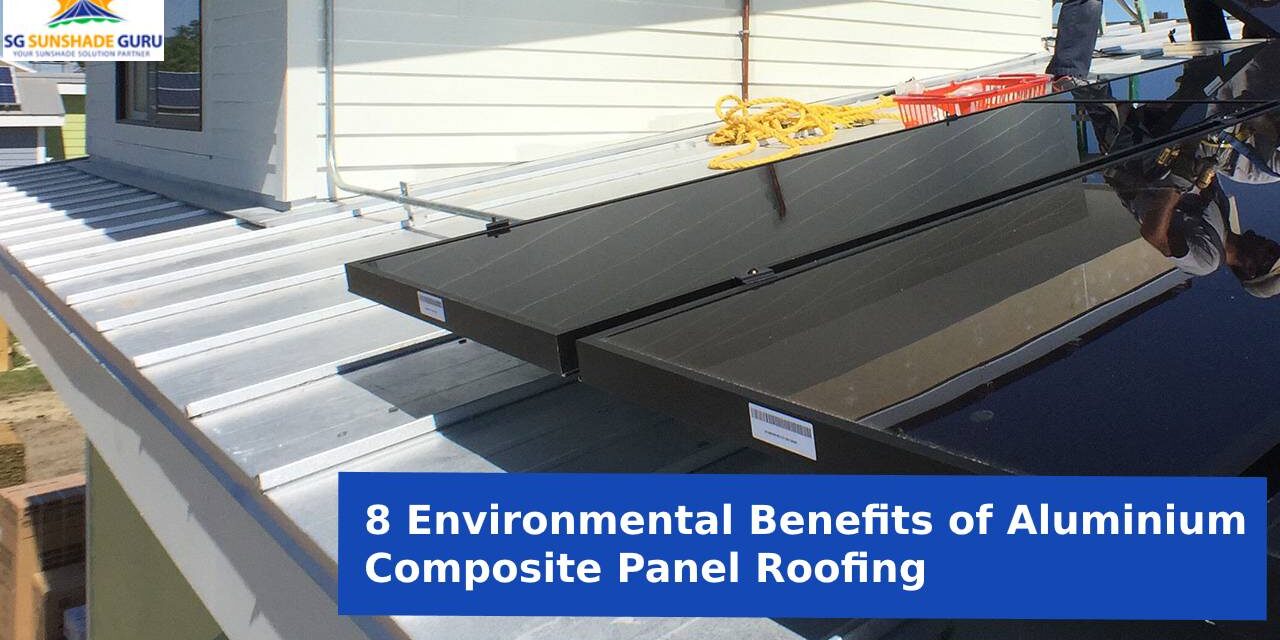In an era when environmental sustainability is a growing concern, building materials that offer eco-friendly benefits are gaining popularity. One such material that stands out is Aluminium Composite Panel (ACP) roofing. ACP roofing systems not only provide structural integrity but also offer several environmental advantages. In this blog, we’ll explore the environmental benefits of installing aluminium composite panel roof in Singapore.
Energy Efficiency
One of the primary environmental benefits of ACP roofing is its energy-efficient properties. These panels typically have high solar reflectance and thermal emittance, meaning they reflect a significant portion of the sun’s heat away from the building. This reduces the heat island effect in urban areas and lowers cooling costs for the building’s occupants. ACP roofing can help reduce the urban heat island effect, leading to a cooler and more comfortable urban environment.
Durability and Longevity
ACP roofing is known for its durability and longevity. These roofing systems have a longer lifespan compared to many other roofing materials, such as asphalt shingles. The extended lifespan means less frequent replacement, reducing the amount of roofing material waste sent to landfills. This durability also contributes to lower maintenance and repair costs, further minimizing the environmental impact.
Recyclability
Aluminium, a key component of ACP roofing, is highly recyclable. When ACP roofing reaches the end of its life cycle, the aluminium panels can be recycled and repurposed for various applications. Recycling aluminium requires significantly less energy compared to extracting and refining new aluminium from raw materials. This reduces energy consumption and greenhouse gas emissions associated with aluminium production.
Lightweight Construction
ACP roofing is lightweight compared to traditional roofing materials like concrete tiles or metal sheets. The lightweight nature of ACP panels reduces the structural load on buildings, allowing for more efficient and cost-effective designs. This can lead to lower construction and transportation-related emissions, as fewer materials are required, and transportation costs are reduced.
Low Maintenance Requirements
Another environmental benefit of ACP roofing is its low maintenance requirements. Unlike some roofing materials that require regular coatings or treatments to maintain their performance, ACP roofing typically requires minimal maintenance. This reduces the need for maintenance-related chemicals and coatings, decreasing the environmental impact associated with their production and application.
Reduction in Landfill Waste
The use of ACP roofing can significantly reduce the amount of roofing waste sent to landfills. With a longer lifespan and the ability to be recycled at the end of their use, ACP panels contribute to a reduction in construction and demolition waste. This aligns with sustainability goals aimed at reducing the environmental burden of landfills.
Improved Insulation
Many ACP roofing systems are designed with insulation properties that enhance energy efficiency. By reducing the heat transfer between the building’s interior and exterior, these roofing systems can help reduce the reliance on heating and cooling systems. This translates to lower energy consumption and reduced greenhouse gas emissions.
Reduced Urban Heat Island Effect
The urban heat island effect occurs when urban areas experience higher temperatures than their surrounding rural areas due to human activities and the built environment. ACP roofing, with its high solar reflectance properties, can help mitigate this effect by reflecting a significant portion of solar radiation. This can contribute to cooler urban environments and lower cooling energy demands.
Conclusion:
Aluminium Composite Panel roofing offers a range of environmental benefits that make it an attractive choice for eco-conscious builders and property owners. From energy efficiency and recyclability to reduced maintenance requirements and the mitigation of urban heat island effects, ACP roofing systems can positively impact the environment throughout their life cycle. As sustainability becomes increasingly important in construction, ACP roofing stands as a promising option for reducing the environmental footprint of buildings and promoting greener practices in the industry. Whether looking for ACP roofing, or polycarbonate roofing sheets for your residential or commercial property, ensure to source from a reliable and quality supplier.




